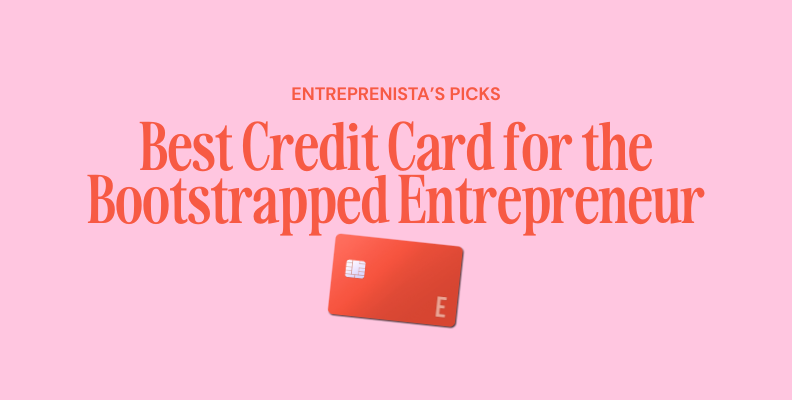.png)
Building a Vegan Brand? Here’s Why Specialized Legal Support Can Make or Break Your Success
June 6, 2025
Are you a passionate vegan entrepreneur ready to make your mark? Maybe you’re launching a plant-based food line, opening a vegan café, or building a beauty brand that’s as kind to animals as it is to your customers.
First, let me say: I see you. I’ve been vegan for 27 years, and while I haven’t built a vegan brand myself, I’ve successfully built multiple law firms – so I understand the dedication and vision it takes to build something that aligns with your values.
But here’s the truth bomb: the vegan business landscape is booming, but it’s also a legal minefield. One misstep with your brand name, a contract oversight, or a misunderstood employment law can unravel years of hard work. As a Florida-licensed employment law and trademark attorney, I want to pull back the curtain on the legal pitfalls vegan brands often overlook – and show you how specialized legal support isn’t just a "nice to have,” but your secret weapon for lasting success.
Let’s dive in, shall we?
Why Vegan Brands Need Specialized Legal Guidance
Vegan businesses face unique challenges that go beyond the typical startup headaches. You’re not just selling a product – you’re selling trust, ethics, and a promise to your community. That means the stakes are higher, and the legal landscape is more complex.
Here’s what sets vegan brands apart, legally:
- Labeling and regulatory gray zones: The term “vegan” isn’t legally defined in most jurisdictions, leaving brands vulnerable to challenges and consumer mistrust if claims are questioned. While general labeling laws require that claims be truthful and not misleading, the term “vegan” itself remains unregulated, so companies must rely on best practices and voluntary certifications to substantiate their claims.
- Trademark disputes: As the market explodes, so do conflicts over brand names, logos, and vegan certification marks.
- Employment law nuances: While U.S. courts have not definitively established veganism as a protected belief, some cases and legal scholarship have suggested that ethical veganism may qualify for protection under Title VII if it is sincerely held with the strength of a religious conviction. At this time, there are no binding precedents or widespread protections, so employers are not universally required to accommodate vegan beliefs, and legal outcomes may vary by jurisdiction, but this is an area of law to keep an eye on.
- Supply chain and contract risks: From ingredient sourcing to manufacturing, vegan brands must be vigilant about cross-contamination, labeling, and supplier agreements.
Let’s break down the most common legal pitfalls – and how to avoid them.
Trademark Trouble: Protecting Your Vegan Brand’s Identity
You’ve poured your soul into your brand name, logo, and packaging. But did you know that plant-based and vegan companies are facing a wave of trademark disputes as the industry grows?
Why Trademark Protection Matters
- Market Saturation: With so many new vegan brands, the risk of accidentally infringing on someone else’s trademark – or having yours copied – is higher than ever.
- Certification marks: Using vegan certification marks (like the Certified Vegan Logo or Vegan Trademark) requires compliance with specific standards and proper licensing.
- Brand Confusion: Without strong trademark protection, you risk losing your unique identity and consumer trust.
Real-World Risks
Trademark disputes over similar brand names and logos are common in the U.S. vegan sector. For example, there have been legal battles over terms like “vegan butcher” and slogans between plant-based brands and larger food companies. These disputes can cost tens of thousands in legal fees and force costly rebrands.
How Specialized Legal Support Helps
- Comprehensive trademark searches to ensure your brand is unique and defensible.
- Strategic trademark registration at the federal level.
- Guidance on using and protecting vegan certification marks.
- Advice on avoiding consumer confusion and potential infringement claims.
Labeling Law: Navigating the U.S. Regulatory Maze
One of the biggest legal gray areas for vegan brands in the U.S. is product labeling. Here’s the reality:
The U.S. Labeling Landscape
- No legal definition: The FDA does not define or regulate the term “vegan.” Brands can use the label, but there’s no standardized meaning enforced by law.
- Truthful labeling required: The Fair Packaging and Labeling Act and FDA regulations require that all claims be truthful and not misleading.
- State-specific laws: Some states have considered or enacted laws restricting how plant-based products can use terms like “milk,” “cheese,” or “burger.” This has led to lawsuits and forced some brands to change their packaging.
- FDA guidance: The FDA’s latest draft guidance (2025) recommends that plant-based foods clearly identify the primary plant ingredient in the product name (e.g., “Soy-Based Cheese” instead of just “Vegan Cheese”).
Certification Adds Credibility
Because “vegan” is unregulated, third-party certification (such as from Vegan Action or the Vegan Trademark) can help substantiate your claims and build consumer trust. Certification requires documentation and ingredient verification, adding a layer of accountability.
How Specialized Legal Support Helps
- Reviewing product labels to ensure compliance with federal and state laws.
- Advising on FDA guidance for plant-based product naming and ingredient disclosure.
- Supporting certification applications and helping you understand what each mark means for your business.
Contract & Supply Chain Pitfalls: Keeping Your Brand Vegan (and Safe)
Your vegan promise is only as strong as your supply chain and contracts. Here’s where things can go wrong:
Common Pitfalls
- Ingredient sourcing: Without airtight contracts, suppliers might substitute non-vegan ingredients or fail to disclose animal-derived processing aids (like bone char in sugar or animal-based colorants).
- Cross-contamination: Vegan brands must ensure products are manufactured and stored separately to avoid accidental contamination, which can lead to consumer backlash or legal claims.
- Unclear contract terms: Supply chain disruptions can lead to disputes over delays, price changes, or substitutions.
How Specialized Legal Support Helps
- Drafting and reviewing contracts that require full ingredient disclosures, vegan-compliance clauses, and remedies for breaches.
- Supplier audits and due diligence to verify vegan claims and prevent cross-contamination.
- Business continuity planning to protect your brand from supply chain shocks.
- Dispute resolution mechanisms built into contracts, so you’re not left scrambling if something goes wrong.
Employment Law: Protecting Your Brand and Your People
The intersection of veganism and employment law in the U.S. is nuanced:
What Vegan Entrepreneurs Should Know
- No explicit protection: U.S. law does not explicitly protect veganism as a belief or require employers to accommodate vegan practices.
- Possible Title VII claims: Some legal scholars argue that ethical veganism could qualify as a sincerely held religious belief under Title VII, but there are no binding precedents or widespread protections.
- Workplace policies: Fostering an inclusive environment and respecting vegan employees’ beliefs can help prevent conflicts and potential claims.
How Specialized Legal Support Helps
- Crafting inclusive workplace policies that respect vegan beliefs and avoid potential discrimination.
- Training and guidance for managers to prevent bias.
- Reviewing employment contracts to ensure compliance with state and federal law.
Branding & Marketing: Walking the Moral Tightrope
Vegan brands aren’t just selling products – they’re selling a mission. But leading with ethics can backfire if your claims aren’t backed by legal and regulatory rigor.
How Specialized Legal Support Helps
- Ensuring marketing claims are substantiated and not misleading.
- Protecting your brand’s reputation by avoiding greenwashing or “vegan-washing.”
- Advising on influencer and partnership agreements to ensure everyone representing your brand is on the same legal page.
The Bottom Line: Don’t DIY Your Legal Protection
You wouldn’t try to make your own vegan cheese without a recipe – so why risk your business with generic legal advice? Specialized legal support for vegan brands is about more than avoiding lawsuits. It’s about building a foundation of trust, credibility, and resilience that lets your mission shine.
Why Work with an Attorney Who Understands Vegan Values?
- Shared values: An attorney who understands veganism is more likely to anticipate the questions and risks that matter most to you and your customers.
- Industry insight: Legal professionals who stay up to date on the latest regulatory and market changes affecting vegan brands can help you avoid pitfalls and seize opportunities.
- Holistic support: From trademarks to contracts to employment law, a knowledgeable attorney can help you build a business that’s as strong legally as it is ethically.
Ready to Build a Vegan Brand That Lasts?
If you’re looking for legal support from someone who’s passionate about vegan values and committed to helping your business thrive, I’d love to connect. With nearly two decades of legal experience and a long-standing commitment to veganism, I’m here to help you navigate the unique legal landscape facing vegan entrepreneurs.
Here’s to your vegan vision – and to building a brand that stands the test of time!
Disclaimer: This blog is for informational purposes only and does not constitute legal advice.
For personalized guidance, please consult with a qualified attorney.














.png)

.png)





